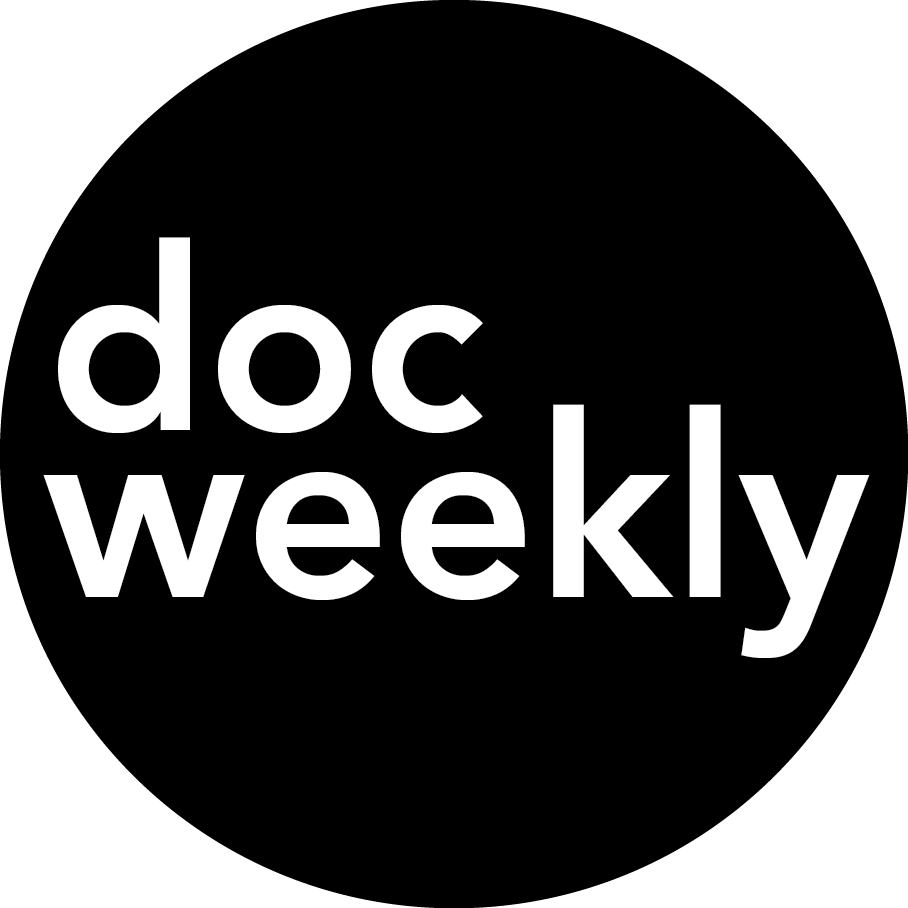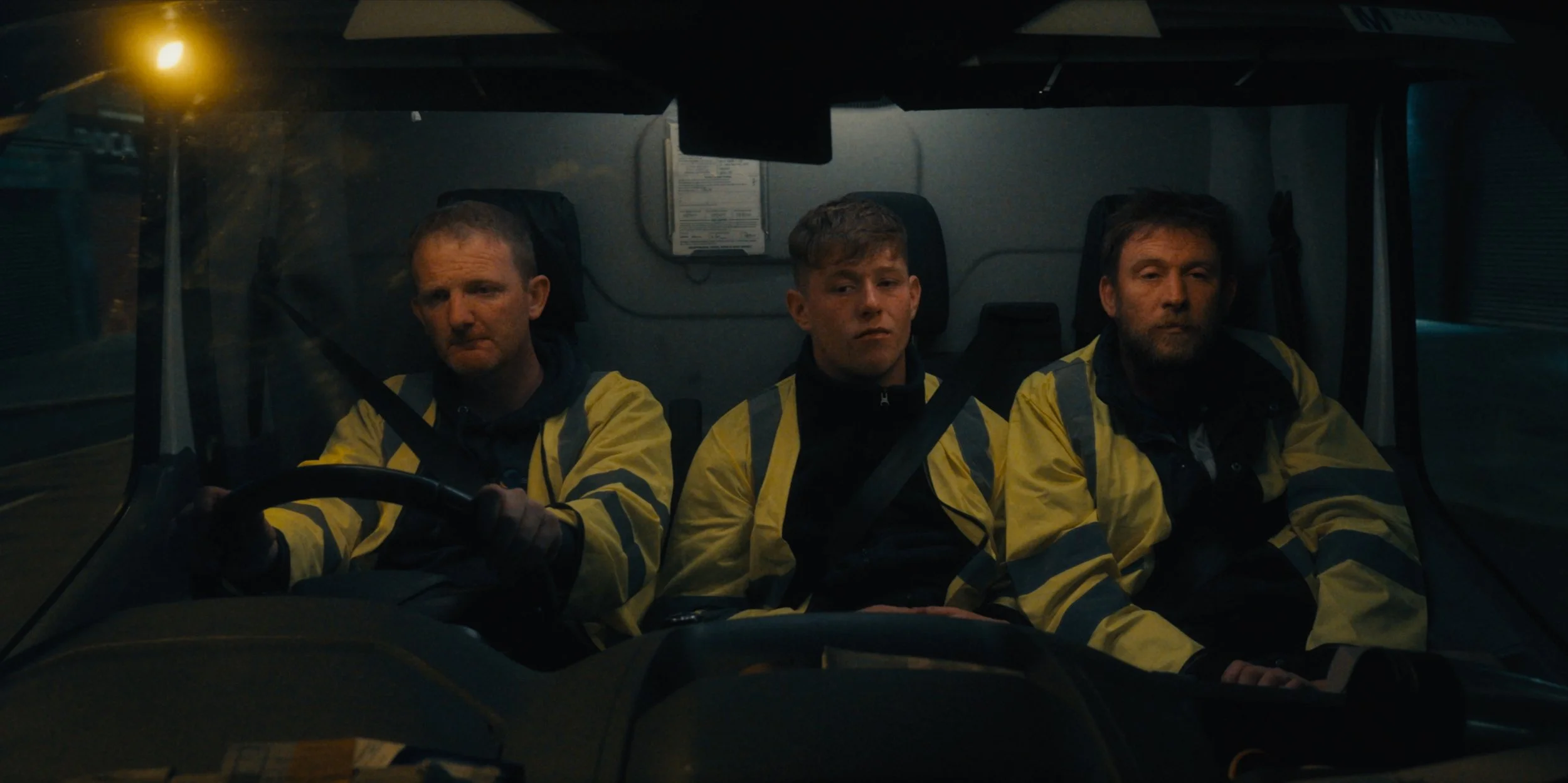How to Overcome Britain’s Identity Crisis : Blue Has No Borders Interview
Doc Weekly contributor Jasmine Haniff is at this year’s edition of Sheffield DocFest to catch the World Premiere of Blue Has No Borders by Jessi Gutch, selected in the International First Feature Competition.
In a Britain increasingly divided by culture wars and identity politics, Blue Has No Borders tries to make sense of the decade-long identity crisis that followed Britain’s departure from the European Union.
Having relocated from London to Folkestone - a coastal town in England known for its iconic white cliffs and, more recently, as a common landing point for refugees and asylum seekers arriving in the UK in small boats - Gutch was determined to get to know her new town and its people on a community level. As anti-migrant rhetoric in the UK reaches a crisis point - underscored by Prime Minister Keir Starmer’s recent pledge to curb migration and “take back control of our borders” - Blue Has No Borders moves beyond political headlines and media narratives to explore the issue in a more grounded, human context.
In an effort to reclaim a sense of national pride often co-opted by the far-right, Gutch brings together six unlikely neighbours - including an asylum seeker, a staunch Brexiteer and a drag artist - for an honest conversation about the myriad ways to feel British. These personal stories form the core of the film, as Gutch navigates the political, social and racial divisions that have shaped modern Britain.
Ahead of the festival, I spoke with Gutch over Zoom. We discussed identity politics, psycho-geography, the power of community and more. I asked how she chose the patchwork cast of characters who make up the film.
“It was really hard because I wanted to humanise everyone, to make them a real, three-dimensional, flawed person. But I also wanted to get to the point of it being a collective essay of England that includes everyone. How do I cast that without saying: I’m going to get a white working class person? Or I’m going to get an asylum seeker. It did end up being a bit labelled.”
“Once we started filming, it became more about how they were on camera, their view and perspective, and how we connected… I like when the camera isn’t neutral, it’s not objective. There’s an energy created between the filmmaker and the person being filmed. That became quite an important thing - I had that feeling with everyone who’s in the film now.”
Indeed, Blue Has No Borders is far from a straightforward fly-on-the-wall documentary. Gutch’s voice is the driving and guiding force of the film and we accompany the director on her own journey of self-discovery as the film takes the form of a collective participatory essay. Small pockets of the participants’ lives are paired with frank conversations with the filmmaker, culminating in a final meeting between all six characters - and Gutch - around a windswept dining table on a Folkestone beach.
“I was really interested in the idea of it being a kind of collective essay - between me and the characters. That’s how it felt while we were making it. There was this ongoing dialogue, and that process felt like we were co-authoring something.”
“It was also a way to reflect how fragmented the experience of living can be. I was thinking about certain filmmakers who treat documentary as a way of capturing the strangeness of an encounter - like the documentary becomes this record of unexpected moments. That’s what I feel I ended up doing. It doesn’t follow a traditional story arc, and I’m okay with that - because I don’t think life feels like a neatly structured narrative.”
Outside a former military barracks repurposed as a temporary detention centre for newly arrived migrants, Josie, an artist and activist, reflects on the role of place in Folkestone: the land, she says, is the reason everything happens. This theme of rootedness runs deeply through the film. You get the sense that it could only have been made in Folkestone. Quintessentially British images of people huddled under umbrellas watching the coronation are juxtaposed with sweeping shots of the cliffs and the bracing, all-powerful sea. The sea anchors the film - both visually and metaphorically.
“Living here is the first time I’ve really felt the land and the psychogeography of the UK in a way I never did while living in a city. In cities, you experience it differently, but when it comes to the natural landscape, the geography, and the politics tied to that geography, it’s so present here. That’s part of what gave me the confidence to make the film. This place felt right for exploring these themes. There’s just so much embedded in the environment…
When you’re standing on the cliffs, there’s a real feeling of defensiveness, which I found really striking. The sea plays such a big part in the culture here. Even if you don’t live right by it, it holds memories. I think everyone, at some point, has a feeling of being drawn to the sea, to the seaside. And when you’re there, you feel something.”
The more cynical amongst us might question whether it’s as easy as the film makes it look to come together across divisions and sit down for an honest conversation around a dinner table. Gutch appreciates that this particular scene might be more difficult to scale up on a national level, but hopes the film might form the starting point to a wider conversation.
“In a way, it gave me a lot of hope. That table became a kind of microcosm. But the bigger question is: how does that translate into the real world? That’s the thing about documentary - it's real, but it’s also constructed.
One thing we’d really like to do is create an impact tour inspired by that final meal. The idea is to partner with local activists to bring together people from across different parts of the community - especially in places where there’s tension, like areas affected by last summer’s riots, or where there are large asylum accommodations.
We’d screen the film, then share a meal afterwards. I think it would be an interesting way to scale up what happened around that table - to see what happens when it’s expanded into real-life communities. And then... we’ll see.”
Blue Has No Borders will be World Premiering at Sheffield DocFest on Friday 20th June, followed by a Q&A with the director Jessi Gutch. Screenings and Q&As will also take place on the 20th and 21st. Tickets and info here.
Blue Has No Borders is produced TigerLily Productions and I Am Charlie.












